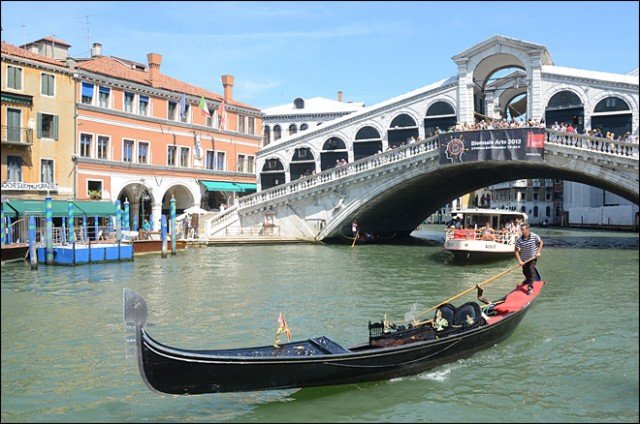
Venice authorities have set out proposals to make navigation safer on the city’s main waterway after a German tourist died in a crash last week.
They aim to regulate traffic flow on the heavily congested Grand Canal, and include plans to carry out checks for drug use by gondoliers, the mayor says.
A 50-year-old German man died after his gondola collided with a “vaporetto”, or public water bus, on August 17.
Police say traces of cocaine were found in the bloodstream of the gondolier.
“We have to think of the Grand Canal as a street, a main street like that of all cities, with particular heavy traffic…we need some discipline,” said Venice Mayor Giorgio Orsoni on Monday.

To avoid future accidents, he said, “these measures will require some sacrifices for citizens”.
Gondolas may only be allowed to operate at certain times of the day after morning rush hour, he added.
He said the city council was assessing the possibility of widening narrow passageways – such as where the recent crash took place – by removing structures such as small docks.
They also hope to introduce a system of checking for drug and alcohol abuse by those in charge of boats and are looking into proposals to ban captains from using hand-held devices whilst navigating the canals.
Jaochim Vogel and his family were thrown into the water after their gondola collided with a water bus, which carries members of the public around the city’s canals.
His three-year-old daughter was treated in hospital for head injuries. Joachim Vogel, however, died after getting crushed between the two vehicles.
An association of gondoliers, which oversees training and issues limited licenses, is also engaged in discussions on safety and accident prevention.
[youtube pIPMubF1BA0]